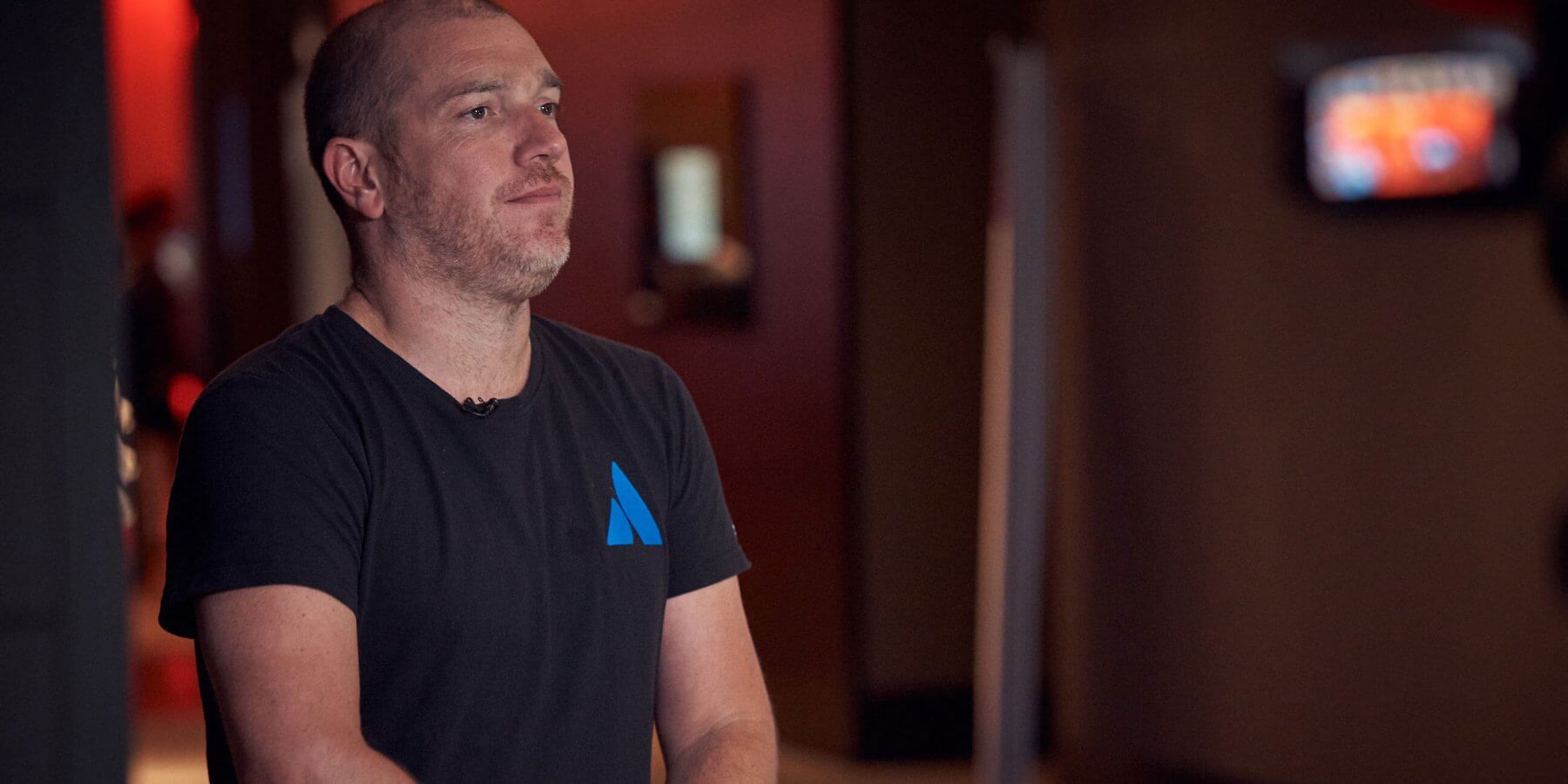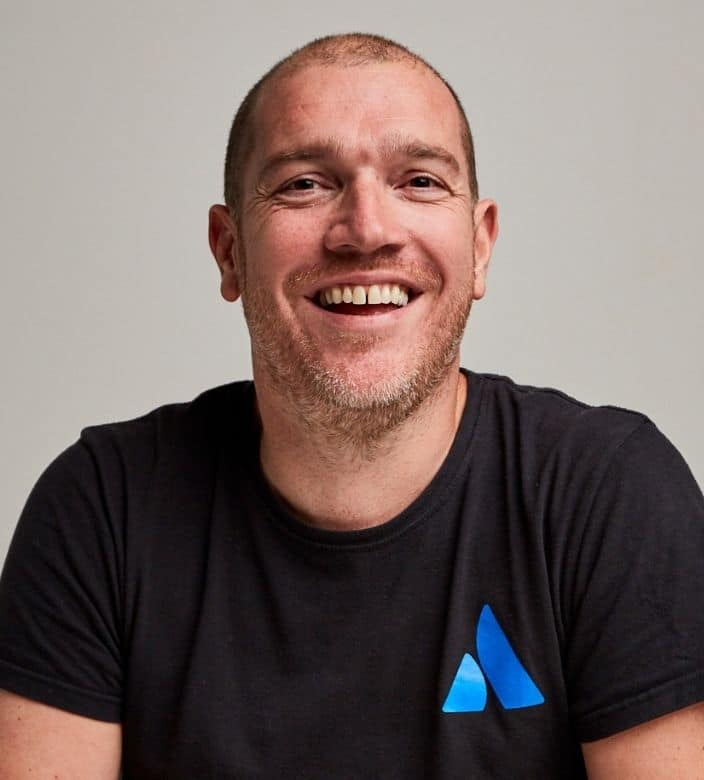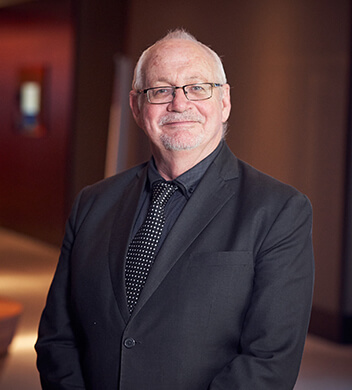At ADAPT’s CIO Edge conference Graeme Philipson interviews Dominic Price, Chief Futurist at Atlassian. Price is a regular speaker at ADAPT events, injecting an enthusiasm for innovation and real-world examples of how cutting edge organisations are making a difference.
Graeme Philipson:
Dom, thanks for talking with us. Atlassian is no longer a startup. How do you maintain the momentum of a startup in a company that’s now quite large?
Dominic Price:
When I think about startups, I like to differentiate between size and feel. Atlassian is now 3,000 people. We still feel like a startup. Every time we’ve looked to scale the organisation, we look at the things that create uniqueness, create that vibe, that mojo, the spirit and intent of how we work and we nurture them and we look at the things that will cause bureaucracy, the slowing down, the lethargic decision making, the poor engagement and we actively do work to stop them creeping into our business.
Graeme Philipson:
What are those things that nurture young people or new people? What are the innovative things?
Dominic Price:
There’s a couple of things that I think give a huge amount of energy to the Atlassian experience. One is the cognitive diversity of all the people we have around the globe. The differences of opinion and how we bring respectful dissent, that friction …
Graeme Philipson:
Respectful dissent.
Dominic Price:
Respectful dissent, where you get that honest debate, when you feel in the pit of your stomach, that you don’t agree with that idea. Here’s why, here’s what we should do instead.
Graeme Philipson:
Do you have a system for formally promoting that?
Dominic Price:
You can’t formally promote behaviours. Behaviours are things that you could recognise and you can support people in delivering them. The minute you try and promote them, you get some very weird accidental behaviours. I think one of the ways we’ve stayed small and nimble and feeling like a startup with 3,000 people, but we’re about 400 teams globally.
Graeme Philipson:
You talk a lot about teams in your blogs. What is it about teams that are especially important in a company like Atlassian?
Dominic Price:
I’m a firm believer that you need smart people, but if you look at organisations solving the most complex problems, they’re being solved by teams. Teams that are cognitively diverse, having that discussion, bringing their true selves right. When you get that team together, they can create genius. I think the idea that the lone genius exists, I don’t agree with anymore. A recent Ernst and Young report said 90% of organisations are solving problems so complex, they need teams. Teams are the centre of everything we do. However, we have to give people space and the freedom to still do their individual work, so it’s not that everything I do is in a team, it’s that the team is the centre of my work.
Graeme Philipson:
What sort of individuals do you look for? What sort of traits do you look for in individuals that you hire in Atlassian?
Dominic Price:
I mean, we’re always keen for people that are super smart. That kind of goes as a taken for granted. I think the differentiator we look for, is we actually do a values interview for every single person we might hire. We’re not looking for a cultural fit. I do not believe in cultural fit. Cultural fit means you hire the same as you’ve already got. I’ve worked in those organisations before. What we’re looking for is someone that understands our values but who’s a culture add. They’re going to evolve our culture and I think across the Atlassian globe, we’ve got many cultures and sub-cultures and I’m cool with that. That differentiation is very important to how we work.
Graeme Philipson:
Cognitive diversity.
Dominic Price:
Yes, cognitive diversity all over again. One of our values is an open company, no bullshit. We want people that bring their true selves to work, but they’re willing to be open, not just at being right and sharing their ideas but open to being wrong.
Graeme Philipson:
How old is Atlassian now?
Dominic Price:
In theory, we’re 16 years old. I say in theory because I’ve been there for six years and it feels like 17 and it feels like one. It’s this weird combination that we change so much, so quickly, I feel like I’ve been there forever, but it feels fresh everyday as well.
Graeme Philipson:
Where do you think Atlassian will be in ten years’ time?
Dominic Price:
I honestly have absolutely no idea, and that’s a good thing. I think one of the things we do well is we take that inherent uncertainty, the complexity, the ambiguity that just exists in the world and we embrace it. Don’t fight it, don’t put this cloak of certainty on the work that you do, embrace that change and help take your customers on that mission. For us, a good percent of the time, we’re building products today, for the future. We’re not building the things you think you want today, we’re building the things we think you’ll need in the future, so we can help lead you there.
Graeme Philipson:
Dom, thanks for talking with us today.
Dominic Price:
Thank you very much.
Atlassian is Australia’s great software success story and Dom Price is one of its most high profile and dynamic ambassadors. His contributions to ADAPT events have been highly relevant, bringing lessons from cutting edge to the everyday world of IT management and strategy.
 Watch Video
04:46
Watch Video
04:46

























